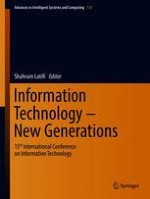2018 | OriginalPaper | Buchkapitel
51. Reproducible Research in Document Analysis and Recognition
verfasst von : Jorge Ramón Fonseca Cacho, Kazem Taghva
Erschienen in: Information Technology - New Generations
Aktivieren Sie unsere intelligente Suche, um passende Fachinhalte oder Patente zu finden.
Wählen Sie Textabschnitte aus um mit Künstlicher Intelligenz passenden Patente zu finden. powered by
Markieren Sie Textabschnitte, um KI-gestützt weitere passende Inhalte zu finden. powered by
